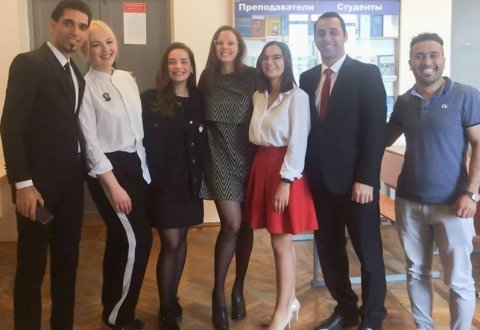Master’s students of the Department of Journalism and Mass Communications of group СГ-216, which participated in the Eurofactcheck international journalism project of the European Journalism Training Association over the year. As part of the project-based learning offered at SUSU, Master’s students worked on a pan-European portal to verify information related to the 2019 elections for the European Parliament and gained special professional skills which allow them to work successfully in the global media space.
Project-based learning also helped the future journalists choose relevant topics for their final projects. Master’s students Svetlana Bobrovskaya and Yulia Sizova studied the phenomenon of fake news and the aspects of their dissemination in new social media. Ildar Saudabaev in his work studied the aspects of network journalism from all sides, its essential characteristics, and the function of network journalism in the context of digitization and fake news. In her work, Arina Marfitsyna thoroughly described the skills of journalists in the age of digital technologies.
Students from Iraq Abboud Mohammed Wahab Abboud, Manhalav Mustafa Hussein Samum and Djabri Ali Hamzan Abbas studied aspects of publishing Iraqi political and economic news on the site of the Russian information agency Sptunik; trends of publishing news on the Arab world on the Rossiya 24 TV channel; the content aspects of shows on the RT Arabic channel. Master’s student Anastasia Bobrova brought up an important topic – immersive journalism, which is a global trend at this time. This year’s Master’s program in journalism had a unique ending: the limited publication of the collective book Factchecking: Synthesis of Theory and Practice, which was based on their own research in fact checking.
“It is important to note that our research is dedicated to the organization of information checking in the international digital media space. This research is important in light of the growing volume of “fake” news in the world and the dire need for verification of information, the organization of fact checking, and the teaching of this process to a new generation of journalists,” said Dean of the Faculty of Journalism, Doctor of Sciences (Philology), Liudmila Shesterkina. “The authors analysed issues of modern journalism, the spread of unverified information in the media and social networks, considered international and interdisciplinary methods of fact checking and verification of information, and described possibilities of fighting against “fake” news, thereby demonstrating their preparedness to work in the international media space.”




